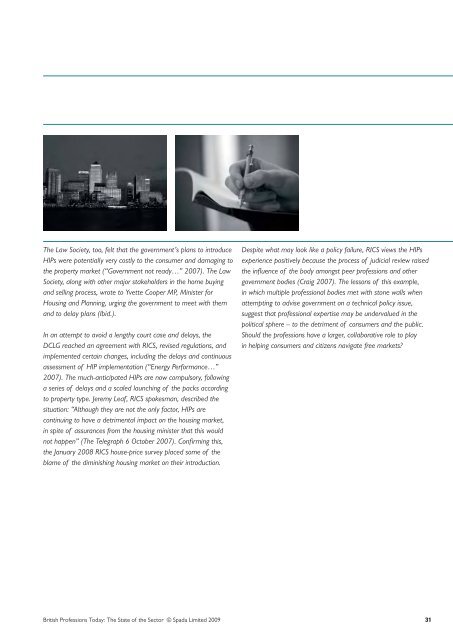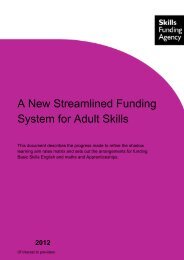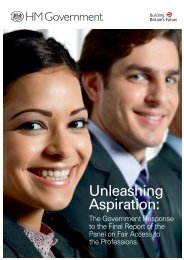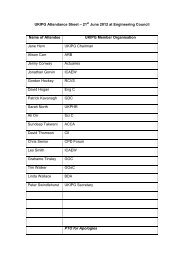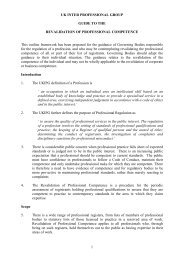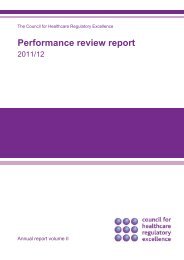BRITISH PROFESSIONS TODAY: THE STATE OF ... - Property Week
BRITISH PROFESSIONS TODAY: THE STATE OF ... - Property Week
BRITISH PROFESSIONS TODAY: THE STATE OF ... - Property Week
Create successful ePaper yourself
Turn your PDF publications into a flip-book with our unique Google optimized e-Paper software.
The Law Society, too, felt that the government’s plans to introduce<br />
HIPs were potentially very costly to the consumer and damaging to<br />
the property market (“Government not ready…” 2007). The Law<br />
Society, along with other major stakeholders in the home buying<br />
and selling process, wrote to Yvette Cooper MP, Minister for<br />
Housing and Planning, urging the government to meet with them<br />
and to delay plans (Ibid.).<br />
In an attempt to avoid a lengthy court case and delays, the<br />
DCLG reached an agreement with RICS, revised regulations, and<br />
implemented certain changes, including the delays and continuous<br />
assessment of HIP implementation (“Energy Performance…”<br />
2007). The much-anticipated HIPs are now compulsory, following<br />
a series of delays and a scaled launching of the packs according<br />
to property type. Jeremy Leaf, RICS spokesman, described the<br />
situation: “Although they are not the only factor, HIPs are<br />
continuing to have a detrimental impact on the housing market,<br />
in spite of assurances from the housing minister that this would<br />
not happen” (The Telegraph 6 October 2007). Confirming this,<br />
the January 2008 RICS house-price survey placed some of the<br />
blame of the diminishing housing market on their introduction.<br />
Despite what may look like a policy failure, RICS views the HIPs<br />
experience positively because the process of judicial review raised<br />
the influence of the body amongst peer professions and other<br />
government bodies (Craig 2007). The lessons of this example,<br />
in which multiple professional bodies met with stone walls when<br />
attempting to advise government on a technical policy issue,<br />
suggest that professional expertise may be undervalued in the<br />
political sphere – to the detriment of consumers and the public.<br />
Should the professions have a larger, collaborative role to play<br />
in helping consumers and citizens navigate free markets?<br />
British Professions Today: The State of the Sector © Spada Limited 2009 31


